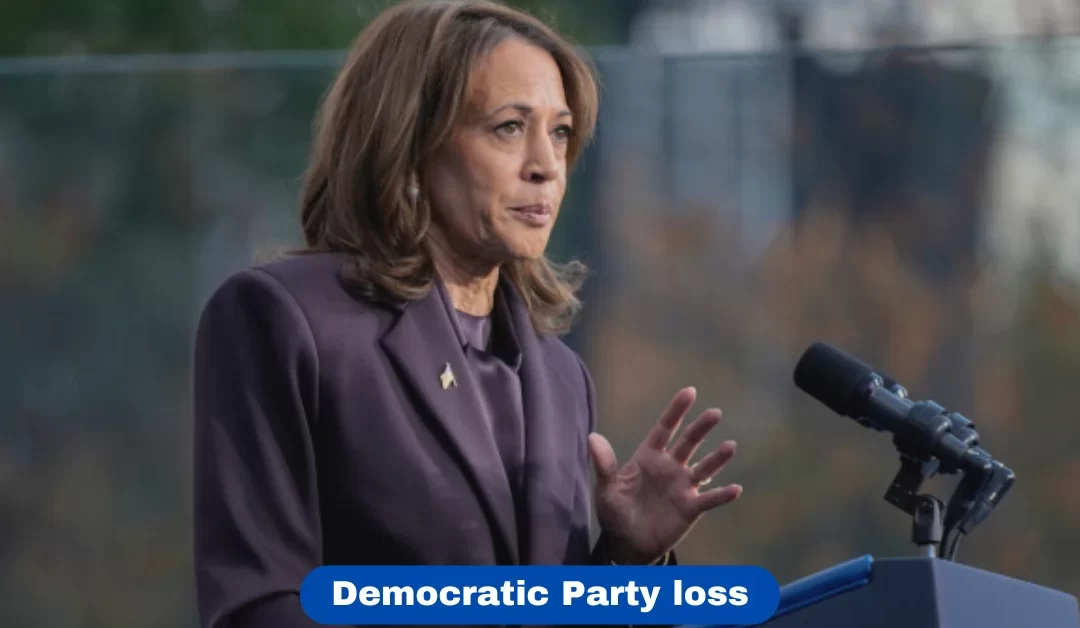The Democratic Party is facing intense scrutiny after suffering a significant defeat in the recent election. This loss has paved the way for Donald Trump’s return, giving the Republican Party a strong hold in government. The defeat has sparked heated debates within the Democratic Party, with leaders, campaign strategists, and supporters pointing fingers to identify the reasons behind their failure. Here, we will break down the key issues that led to this loss and the changes needed to rebuild trust with the American people.
The Historic Loss and Initial Reactions
In a surprising turn of events, the Republicans achieved their first popular vote victory since George W. Bush’s win in 2004. This result has left many Democrats shocked and searching for answers. Jaime Harrison, Chair of the Democratic Party, made headlines when he responded to criticism from Senator Bernie Sanders on social media. Sanders, a long-time advocate for working-class Americans, blamed “big money interests and well-paid consultants” for the Democratic Party’s failure to connect with ordinary voters. He argued that the party had lost touch with the needs of working-class citizens and was too focused on maintaining the status quo.
Harrison’s quick response, calling Sanders’s statement “straight up BS,” added to the tension. His background as a corporate lobbyist for major firms like Boeing, Wells Fargo, and Walmart only fueled criticism that he represents the corporate interests Sanders warned about.
A Long History of Shifting Priorities
While Harrison’s response drew attention, the shift away from working-class interests began long before his leadership. Bill Clinton’s NAFTA-driven free trade policies in the 1990s led to job losses as manufacturing shifted overseas. During Barack Obama’s presidency, the support for the Trans-Pacific Partnership and the failure to pass key pro-labor legislation also disappointed many working-class voters. This history shows a pattern where Democratic leaders have sometimes prioritized corporate interests over the needs of everyday Americans.
Achievements Under Biden’s Administration
Despite these longstanding issues, President Joe Biden did make efforts to support workers. Some of his pro-worker policies included ending predatory noncompete clauses, expanding eligibility for overtime pay, and empowering the National Labor Relations Board to take action against anti-union companies like Starbucks. Biden even made history as the first president to walk a picket line during the United Auto Workers’ strike. These steps showed a commitment to working-class values, but they were not enough to counter the broader perception of the party’s corporate ties.
Kamala Harris’s Campaign Missteps
Vice President Kamala Harris’s 2024 campaign missed opportunities to align with working-class voters. Progressive groups, like Our Revolution, warned early on that the campaign needed a strong economic message to attract these voters. Harris’s strategy, however, leaned towards appealing to wealthy donors and centrist Republicans. Instead of taking a strong stand on economic issues and naming powerful corporate interests, Harris associated herself with figures like billionaire Mark Cuban and Liz Cheney, a conservative war hawk. This approach failed to connect with voters who were looking for bold economic policies.
Key issues were notably absent from the campaign platform, such as raising the federal minimum wage, expanding Medicare, and addressing the national housing crisis caused by private equity’s impact on rising rents. This oversight suggested to many voters that the Democratic Party was out of touch with their struggles.
Consultant-Driven Strategies and Misjudgments
Harris’s campaign team relied heavily on veteran political consultants who misread the public’s priorities. They believed the election would focus on Donald Trump’s controversies, similar to 2016. However, for many voters, the real issue was the Democratic Party’s failure to address economic challenges and the perception that it served wealthy interests more than ordinary Americans.
This miscalculation cost the party vital support from working-class voters, many of whom were former supporters of Bernie Sanders and Elizabeth Warren. Reports showed that a significant number of these voters chose to sit out the election rather than back Harris, signaling dissatisfaction with the party’s direction.
The Way Forward: Accountability and Reform
Rebuilding the Democratic Party to compete effectively against the MAGA agenda requires significant change. This means embracing principled critique, honest reflection, and a commitment to aligning with working-class values. Leaders like Sanders argue for a return to policies that prioritize economic fairness, address corporate influence, and strengthen social safety nets.
The party must also focus on maintaining momentum for progressive policies, increasing outreach to key voter groups, and developing a strong economic platform. Future campaigns should prioritize grassroots support over corporate donations and ensure that policies reflect the real needs of the public.































